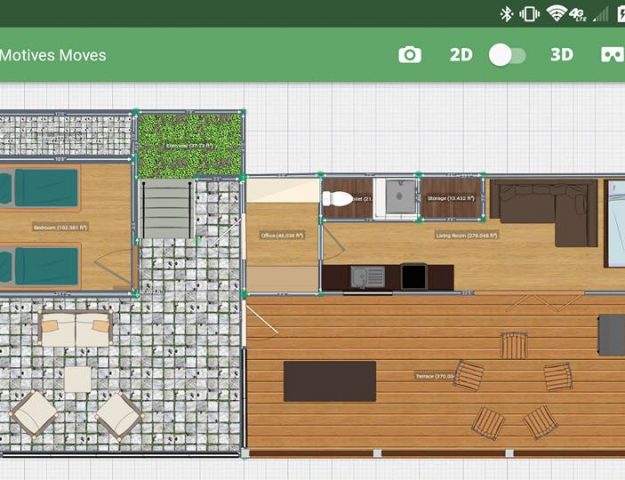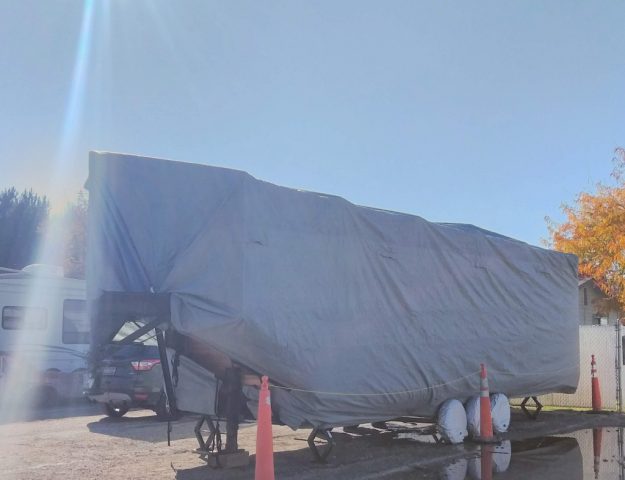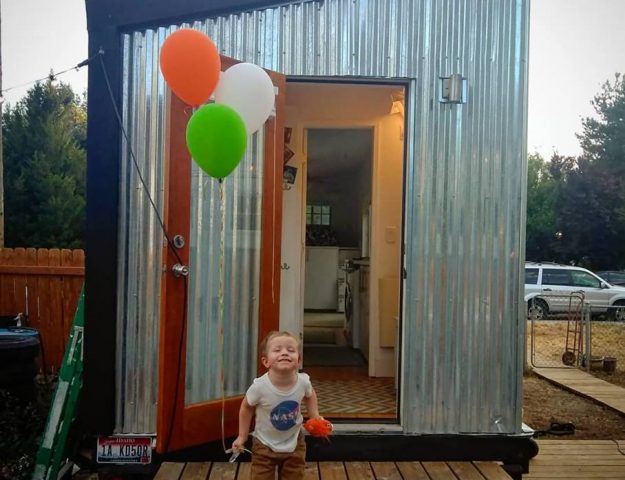Tiny House Listing Interview
I answered a quick set of questions for Laura over at Tiny House Listings (among other places!). I thought it was appropriate to regurgitate those questions here too though. You can see the original post HERE and be sure to check out all their other blog posts, there are some really cool ideas in there! I still LOVE the shower one best :).
On to the questions:
Where is the best place to start to find out what your local codes are?
The best place to start is to go down to your local City Hall, inside of it there is a “Planning Department.” People are there to help the public through all their building and zoning questions. If you are curious about code requirements but are planning to build on a trailer you may want to leave that part off in the conversation. Once you mention that the tiny house is on wheels they will look at you like you’re crazy and stop helping – once it’s on wheels it becomes a DMV/Highway District issue rather than a city code issue. However, the DMV will not be able, in most cases, to help you out with any ‘code’ related stuff. They will do their own checks as much as they can to make sure your house won’t fall off the freeway and endanger others, even then, they are not structural engineers so don’t expect too terribly much!
Even though most code officials won’t be able to help I still highly encourage people to go speak with officials, this will serve to let them know there is a growing demand for help and safety in this area. Those people you speak with are more likely to bring it up at their next meeting and the code officials are the ones who make the codes – they all meet and discuss the priorities and adapt to them, the more people they collectively see coming in to ask about tiny houses the more likely it is that tiny houses are going to start to be considered at the code level.
If you want to go the passive way around things you can look up a copy of the Residential Building Code as well as your local building requirements (generally found on your cities website under something that resembles a ‘Planning and/or Development’ department – this book and these codes are however pretty complex and difficult to work through without experience. If you try and you get stuck you always have the code officials at City Hall to help you understand.
What are the typical things that tiny house builders will come up against in the process?
Typical things that will come up and what drives a lot of people to go with the wheels route instead of a foundation are minimum house sizes. That is probably the biggest limiting factor as I see it. The smallest minimum habitable dwelling I have heard of is 400 square feet and even that had to be as an accessory dwelling (in combination with the bigger “main structure”). There are of course other factors, I think the next biggest one would be the egress requirements from a loft type of space. [This is typically] 5.7 square feet of operable [window/door], which are navigable; but not if you already don’t meet the size requirements.
Once you get into a tiny house on wheels situation you have other enforceable code issues you will have to work with, not so much in the structure but in the parking. If you are on wheels you will have to register your house as a semi-trailer, an RV, or a mobile home (these are the only divisions I have heard of, there may be others out there though). The issues with each should be considered, a mobile home can only be parked in designated mobile home parks (maybe not the ideal situation for most of the crew that is interested in tiny houses… unless someone starts to develop tiny house parks… which is a development option I am interested in looking into – but that’s a whole OTHER story! ![]() – the best I can tell this is because they have systems set up to tax these dwellings appropriately for city functions like fire/police/schools etc.). Semi-trailers cannot be lived in for any amount of time and RVs generally have rules set by each city for how long you can live in them in the same location (our limit is 30 days). Not to say that you couldn’t find a place to park it where no one will ever complain. Generally the time limit with RVs isn’t enforced unless there is a complaint. The best way to avoid this would be to speak with your would-be neighbors and make sure the subdivision/city codes don’t have any statements prohibiting RVs.
– the best I can tell this is because they have systems set up to tax these dwellings appropriately for city functions like fire/police/schools etc.). Semi-trailers cannot be lived in for any amount of time and RVs generally have rules set by each city for how long you can live in them in the same location (our limit is 30 days). Not to say that you couldn’t find a place to park it where no one will ever complain. Generally the time limit with RVs isn’t enforced unless there is a complaint. The best way to avoid this would be to speak with your would-be neighbors and make sure the subdivision/city codes don’t have any statements prohibiting RVs.
What is the best way to make your case to the local government about building a tiny space?
Right now there is no way I know of. These are not legal; you won’t get any sort of official approval. You may be able to do it and fly under the radar but there is not a single tiny house that is fully “legal.” The best thing we can do right now is bring the issue up to local officials so they can start to put it on their radar for future meetings when talking about codes.
Right now the 2015 codes is being worked on, I have pretty much been assured that tiny houses won’t be addressed in it. Currently most areas are still on the 2009 code, switching over to 2012 next year (they re-evaluate codes every 3 years). That means, in the best case possible, we are looking at getting tiny houses incorporated into codes by 2018 and not fully adopted until 2019-2020 but every government process is very involved and time consuming. We need to be able to show a demand for change and we need a few strong leaders that can push at a higher level for change. I think we definitely have a group of willing people to step up and push at a higher level, myself included, but if there are others I would highly recommend they get involved, they can email me specifically if they want!
What are the best ways to get around codes when thinking of building tiny?
Building on wheels is the biggest thing you can do. You become a DMV/Highway District issue, you pay your permits through them (which are much cheaper than building permits) and you do what you can. There is a huge lack of security in knowing you can just be where you are, you become very dependent on your relationships and finding someone who will share their lot with you and hopefully doesn’t have neighbors that will complain. If they do, you find a new spot.
What are the best ways to work with the community to make changes that will help tiny house builders?
Be involved! Talk to city planners and code officials and let them know what you would like to do. You can do this without telling them you’re going to do it anyway. Get this on your local cities radar, just endure the crazy looks. One local county here actually saw the demand and have changed their local zoning codes to say that you can live in an RV full time, so long as you meet a short list of requirements, that means that, in that county tiny houses registered as RVs are in-fact legal with a little extra care. Unfortunately this is a very rural area and isn’t where I personally want to be.
I have actually expected more crazy looks than I’ve gotten. There are a lot of people who will think you’re brilliant for wanting to do this. Tiny houses were not a big deal 60 years ago, they were totally normal. Now there are whole generations of people who have bought into the “American Dream” of so much debt you can’t help but work ridiculous amounts of your life away paying for it. With the economy how it’s been we are seeing a lot more understanding and almost jealousy of being able to pare down to something that makes so much sense!
I should say, if you ever get a chance to talk to a planner/code official, either by going down there purposefully or just bumping into one, the best question you can ask is “Are you guys (or is your city) looking at the possibility of tiny houses and allowing for them in zoning codes?” They will almost always say “nope,” but it will plant a seed in their head and it will carry forward.



